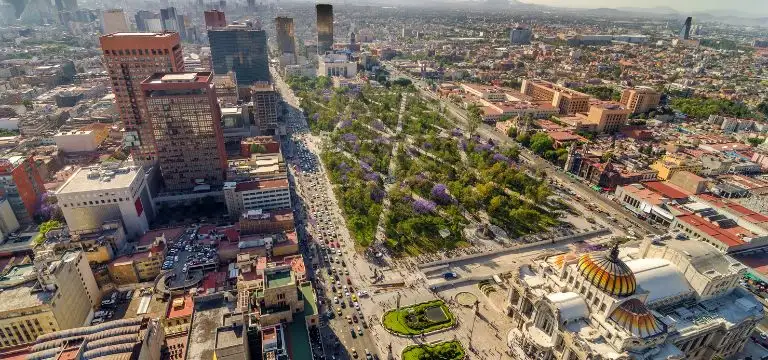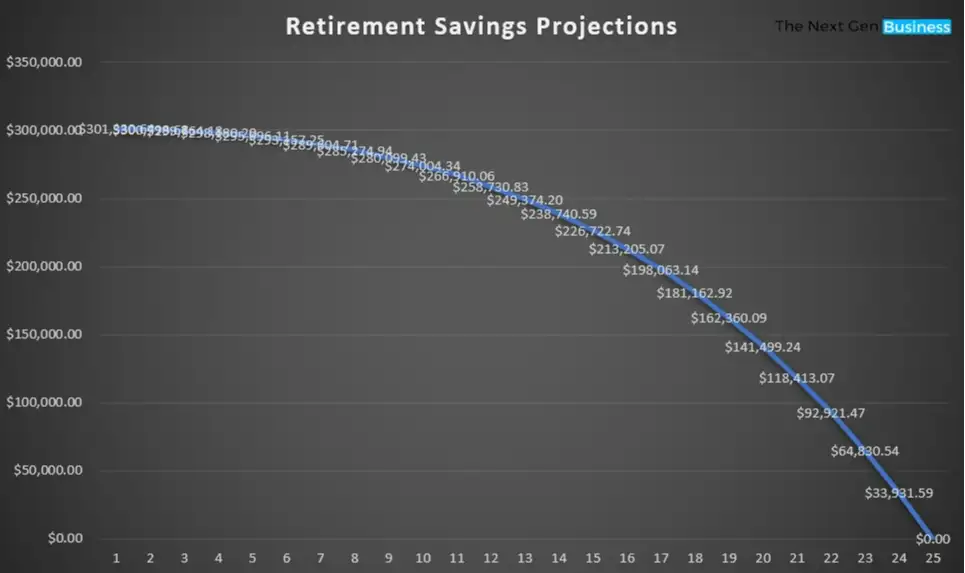
Retiring in Mexico has become an increasingly popular option for many people looking to escape the high cost of living and enjoy a comfortable retirement in a beautiful and culturally rich country. However, one of the main concerns for many people is the cost of retiring in Mexico. Below, we will explore the cost of living, real estate, healthcare, and other expenses associated with retiring in Mexico in 2023.
The Cost of Living in Mexico for Retirees
The cost of living in Mexico is generally lower than in many developed countries, which is one of the main reasons why it is such an attractive option for retirees. According to Numbeo, a website that compares the cost of living in different cities around the world, the cost of living in Mexico City is around 30% lower than in New York City. However, the cost of living can vary depending on the location and the lifestyle of the retiree.
In general, retirees can expect to pay less for basic necessities such as food, transportation, and utilities in Mexico. However, there may be additional costs associated with living in Mexico that are not present in other countries, such as the cost of hiring a maid or gardener.
Retirees who are on a fixed income may find that the cost of living in Mexico is even more affordable than in their home country. However, it is important to keep in mind that the cost of living can vary greatly depending on the location. For example, the cost of living in Mexico City is higher than in many smaller towns and villages.
Estimated Monthly Costs for Retirees in Mexico
According to International Living and LivingCost.org these are the average costs for retirees in Mexico. The average monthly expense for a two-bedroom home in Mexico is $750. This includes expenses such as electricity, water, gas, internet, cellphone, cable/pay TV, healthcare, transportation, groceries, entertainment, and miscellaneous/incidentals.
The average monthly expense for electricity in Mexico is $30, while the average monthly expense for water is $15. Gas and internet expenses average around $30 and $20 respectively. Cellphone and cable/pay TV expenses average around $10 and $35 respectively.
Healthcare is an important consideration for retirees and its cost in Mexico is relatively low. The average monthly healthcare expense for two people on IMSS is around $56. Transportation costs such as car maintenance and public transport cost around $62. Groceries cost around $350. Entertainment costs like dining out and other activities cost around $250. Lastly, miscellaneous and incidentals cost around $150.
Amount Needed To Retire

All that comes out to a monthly total of $1,758 or $21,096 a year (USD). This would be how much it cost to retire in Mexico. It means you would need approximately $301,403.57 to be able to spend this much annually. The figure includes an estimated average inflation rate of 2% and a 7.5% average annual yield on balance.
Real Estate for Retirees in Mexico
Real estate in Mexico can be a great investment for retirees, as property values tend to be lower than in many developed countries. According to the National Association of Realtors, the median price of a home in Mexico is around $150,000. However, the cost of real estate can vary greatly depending on the location. For example, the cost of a home in Mexico City can be several times higher than in a smaller town or village.
When it comes to buying real estate in Mexico, retirees have several options. They can purchase a home outright, or they can invest in a retirement community or a timeshare. Retirees who are on a fixed income may find that renting is a more affordable option.
Healthcare for Retirees in Mexico
The quality of healthcare in Mexico is generally good, and it is often more affordable than in many developed countries. According to the World Health Organization, Mexico has a higher life expectancy than some states in the US.
Retirees can access healthcare in Mexico through the public healthcare system or through private healthcare insurance. The public healthcare system in Mexico is generally less expensive than private healthcare, but it may not be as accessible in some areas.
Retirees who are on a fixed income may find that the cost of healthcare in Mexico is more affordable than in their home country. However, it is important to keep in mind that the quality of healthcare can vary depending on the location.
Retirement Visa for Mexico
Retirees who wish to reside in Mexico for an extended period of time will need to obtain a retirement visa. The requirements for a retirement visa vary depending on the length of stay and the applicant’s country of origin.
Retirees who are on a fixed income may find that the cost of a retirement visa is more affordable than in their home country. However, it is important to keep in mind that the process of obtaining a retirement visa can be complex and time-consuming.
Conclusion
Retiring in Mexico can be an affordable and enjoyable option for many people. The cost of living, real estate, healthcare, and other expenses associated with retiring in Mexico can be lower than in many developed countries. However, it is important to keep in mind that the cost of living, real estate, and healthcare can vary greatly depending on the location. It is also important to consider the cost and process of obtaining a retirement visa.
Retirees who are on a fixed income will find that the cost of living in Mexico is more affordable than in their home country. However, it is important to research and compare the cost of living in different locations in Mexico to find the best fit for your budget and lifestyle.
Real Estate
Real estate in Mexico can be a great investment for retirees, as property values tend to be lower than in many developed countries. However, the cost of real estate can vary greatly depending on the location. Retirees can purchase a home outright, invest in a retirement community or a timeshare, or even rent a property.
Healthcare
The quality of healthcare in Mexico is generally good and more affordable than in many developed countries, but it can vary depending on the location. Retirees can access healthcare through the public or private system, but it is important to research and compare the options available.
The cost of retiring in Mexico in 2023 is generally lower than in many developed countries, but it can vary depending on the location and the lifestyle of the retiree. Retirees should research and compare the cost of living, real estate, healthcare, and other expenses associated with retiring in Mexico to find the best fit for their budget and lifestyle.
If you’re considering retiring in Mexico, it’s important to do your research and consult with experts to ensure that you fully understand the costs, process and what to expect. Additionally, it’s also important to consider your personal preferences and needs. You may want to visit and explore different locations, talk to other expats, and weigh the pros and cons of each location to find the best fit for you.







